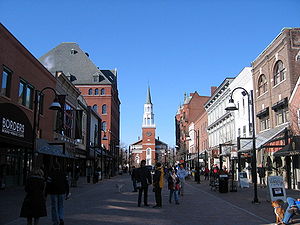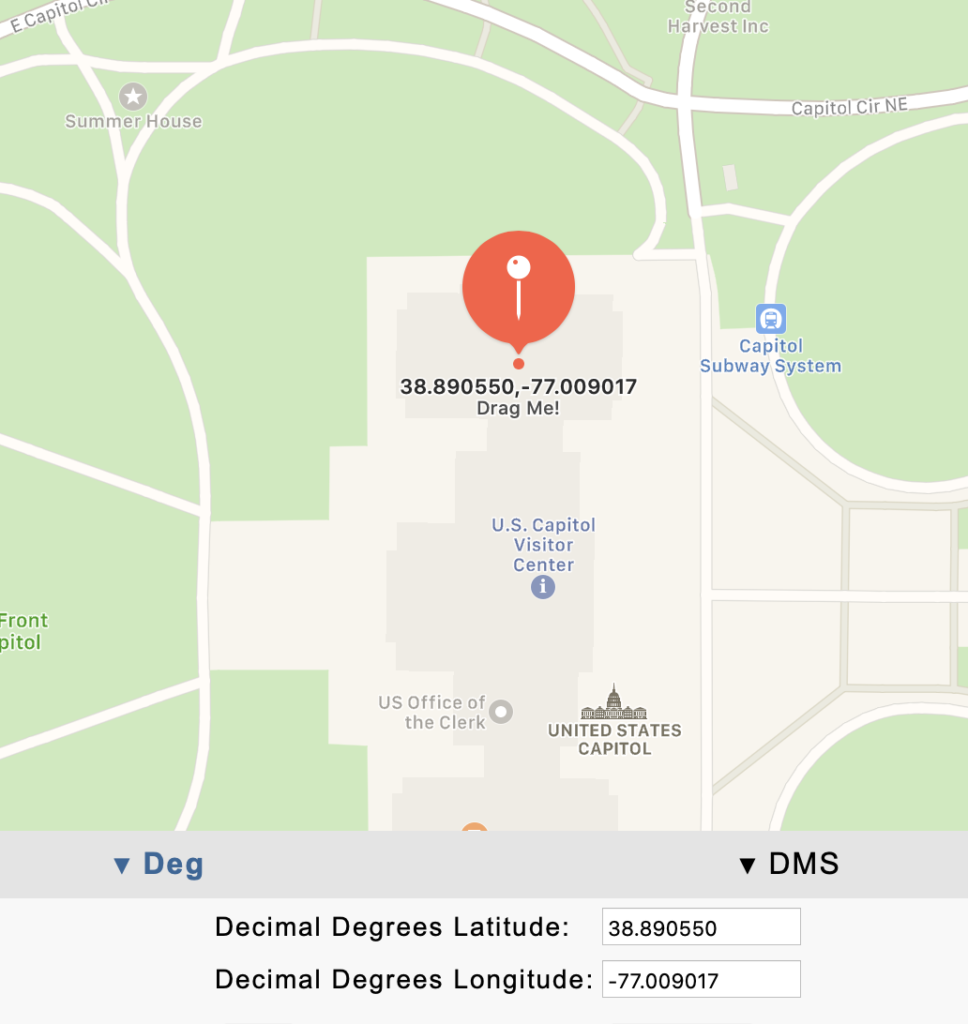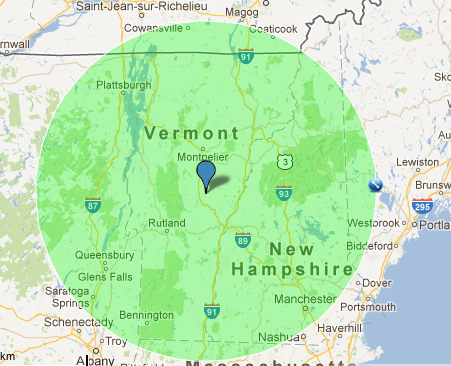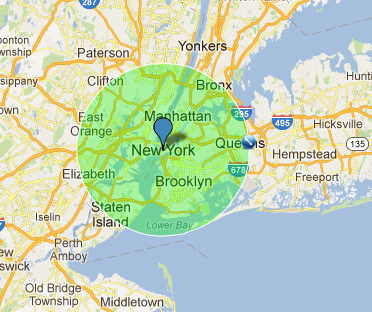
Here are a selection of Twitter searches by location. Each one has a geocode and map so you know how far it reaches.
If you don’t find the search code you need in this reference, leave a comment and let me know what you’re after. I’ll update this reference.
Twitter search can filter by the location of a Tweet if the user has location services turned on. If the Twitter user doesn’t have location turned on, Twitter can filter tweets based on the location in a Twitter user’s profile. If that is left blank, then you won’t be able to find that Tweet using a standard location search.
Additional background on this concept is at the beginning of the online version of my Listening Strategy presentation.
Tweets from Capitol, Jan 6
Following a speech by Donald Trump telling people to go to the Capitol and disrupt the electoral vote certification, many people did. Some of them were using Twitter.
geocode:38.890550,-77.009017,.02kmThe above string will give you Tweets in a 0.02km radius around the Capitol. You can expand or shrink the geofence however you like however you like. But if you want to search Twitter for a specific date range, for example, 1/6/2021, you’ll need to add that as well:
geocode:38.890550,-77.009017,.02km
since:2021-01-05 until:2021-01-07
Example: Tweets about Hurricane Sandy in Vermont
One of the specific ways that geocoded Twitter searches get used is during emergencies and weather events. The challenge with using Twitter to monitor these kinds of things is that people use a variety of relevant terms–some official, some folksonomic, some just random relevant words. Here is an example of a geocoded search string for following Vermont tweets related to the Sandy storm of late October 2012:
Here is an example of a geocoded search string for following Vermont tweets related to the Sandy storm of late October 2012:
-RT -election power OR #vtsandy OR #vtresponse OR #frankenstorm
OR sandy OR flood geocode:43.913723261972855,-72.54272478125,150km
This search eliminates retweets that include the “RT” customary signal and include a variety of word markers. I’ve eliminated the word “election” as well to keep the search focused on things which are immediately important in an emergency environment.
You’ll notice from the image that, since Vermont isn’t a very round state that we’ll be pulling in Twitter posts from some of the areas around Vermont as well.
Also note that in addition to hashtags this twitter location search filter also includes the words “power” and “flood” in case people are tweeting about those words but don’t know about hashtags etc.
Example: NYC Hurricane Sandy Twitter search
This is pretty much the same as the Vermont search above but is instead set to cover New York City.
-RT -election power OR #sandy OR #frankenstorm OR sandy OR flood OR surge geocode:40.714353,-74.00597299999998,20km
Example: Tweets with #BTV hashtag OR #BVT hashtag within 200km of Burlington, VT (Vermont, Montreal, Quebec, Upstate NY and some NH)
Sometimes you want to do an either or kind of search. For example, in Burlington Vermont there are two hashtags which get used: #BTV and #BVT.Some people use both, some people use only one. If you want to merge those streams and limit by geography, use this search string. Note, that this technique will work with any of the other search strings as well.
#btv OR #bvt geocode:44.467186,-73.214804,200km
Example: Tweets with #BTV hashtag within 200km of Burlington, VT (Vermont, Montreal, Quebec, Upstate NY and some NH)
#btv geocode:44.467186,-73.214804,200kmIf you don’t care if a tweet has #BTV in it or not, use this code instead:
geocode:44.467186,-73.214804,200km
Example: Tweets with #BTV hashtag within 2500km of Burlington Vermont
#btv geocode:44.467186,-73.214804,2500kmIf you don’t care whether a Tweet has the #BTV hashtag or not, and just want to use the geofence use this query instead:
geocode:44.467186,-73.214804,2500km
Example: Tweets with #BTV hashtag centered on the lower 48 states USA
#btv geocode:39.8,-95.583068847656,2500kmIf you don’t care whether a Tweet has the #BTV hashtag or not, use this code:
geocode:39.8,-95.583068847656,2500km
Example: Tweets with “malaria” within 500k of the Whalley Arms public house, UK.
Contains the word “malaria” and is within 500km of the Whalley Arms public house in Whalley UK.malaria geocode:53.81982,-2.406348,500km
Example: Tweets within 100 meters of New York’s Zuccotti Park
geocode:40.709,-74.011,.1kmCombining some of the techniques you’ll see in the other examples, you can search for just Tweets that originate within 100meters of Zuccotti Park and also contain the hashtag #OWS, which is often used on Tweets specific to the “Occupy Wall Street” movement.
#ows geocode:40.709,-74.011,.1kmWant a Twitter location search you don’t see in this reference? Let me know in the comments and I’ll see if I can cook it up for you
Can you set a polygon geofence for tweets (not a simple center point + radius)?
Unfortunately you cannot set a polygon or draw a border to find tweets by geography. It only works with a center and radius. If you set up multiple searches you can overlap them in other software to create other kinds of shapes, but that’s just adding up circles as well.
It’s tricky for certain and less than ideal. But there often ways to get close to what you need if you get creative with how you assemble the circles.
Can we specify time limit with geocode? eg., to get tweets from particular time frame from particular geolocation. What are the solutions for this problem?
Do you know if geocode is currently working. I am getting no data returned
hi, i need to have long, lat and time of tweets are in a certain place?
is it possible?
Is this still true? I can’t get it to work on the current version of tweetdeck.
thanks!
Can you search all tweets within a geo tiny geo fence?
Hey, so I am trying to pull tweets with a certain emoji in the United States. Is this possible? Also, what are you using where you show code? Currently I am using python.
Hello there. In your first two examples you had “-election power” as your exclusion criteria. I am new to this so I am wondering, should your string have been “-election -power” or is the search engine smart enough to know you wanted to exclude “election power” (two words)?
Jerman
You should date your articles. I have no idea how old this one is, but a cursory glance suggests that this is no longer relevant to the current platform.
You are mistaken, Brian. These searches all work just fine in the Twitter search box. Just tested them. Thanks for reading though!
Yes, use decimals. But it gets less useful because the location data is truly coming from the network service of the user. So I sort of consider it a town-by-town or part-of-town thing.
Still works in the Twitter interface. It’s been awhile so I should probably update this page for Tweetdeck.
Sure, here’s the article on finding your latitude and longitude: http://thoughtfaucet.com/search-twitter-by-location/make-a-geocode-for-twitter-location-search/
It’s working. Probably an issue with formatting on your side. It’s super picky about spaces etc.
If you want to eliminate more than one word you will need the – in front of each individual word. In the example, I _wanted_ tweets that included power because the search was about finding people who were without power in an emergency. I wanted to exclude tweets with election in them because Vermonters love to talk about politics on twitter and there was just too much noise at that time to find those who were without power.
It does! You just need to enter the code for the emoji (or paste it into the search bar).
Hello,
Is it possible to search for a tweet based on geolocalisation? I mean if my understanding is correct using geo means searching for tweets in this area, but is it possible to search for a localisation and not for a tweet send in this area
Hello Halima,
It is not possible to search for tweets about a specific radius–geolocalisation. Unfortunately, for that kind of thing you may be left with just searching for tweets containing the place-name (and any variations you find). The end result would certainly be quite noisy, but you may be able to refine it once you gain experience with the resulting data set.
Thank you for this great question (and I wish the answer were different)!